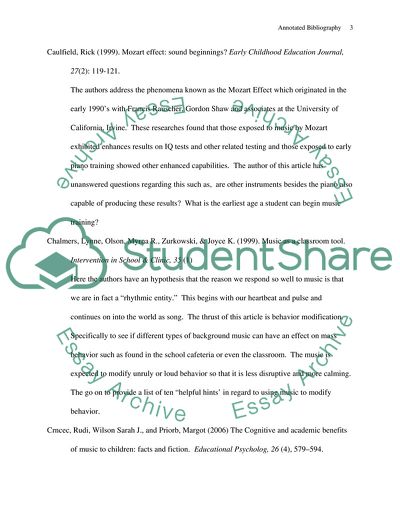Cite this document
(Music and Brain Function in the Classroom Annotated Bibliography Example | Topics and Well Written Essays - 1250 words - 1, n.d.)
Music and Brain Function in the Classroom Annotated Bibliography Example | Topics and Well Written Essays - 1250 words - 1. https://studentshare.org/music/1728295-annotated-bibliography
Music and Brain Function in the Classroom Annotated Bibliography Example | Topics and Well Written Essays - 1250 words - 1. https://studentshare.org/music/1728295-annotated-bibliography
(Music and Brain Function in the Classroom Annotated Bibliography Example | Topics and Well Written Essays - 1250 Words - 1)
Music and Brain Function in the Classroom Annotated Bibliography Example | Topics and Well Written Essays - 1250 Words - 1. https://studentshare.org/music/1728295-annotated-bibliography.
Music and Brain Function in the Classroom Annotated Bibliography Example | Topics and Well Written Essays - 1250 Words - 1. https://studentshare.org/music/1728295-annotated-bibliography.
“Music and Brain Function in the Classroom Annotated Bibliography Example | Topics and Well Written Essays - 1250 Words - 1”. https://studentshare.org/music/1728295-annotated-bibliography.


